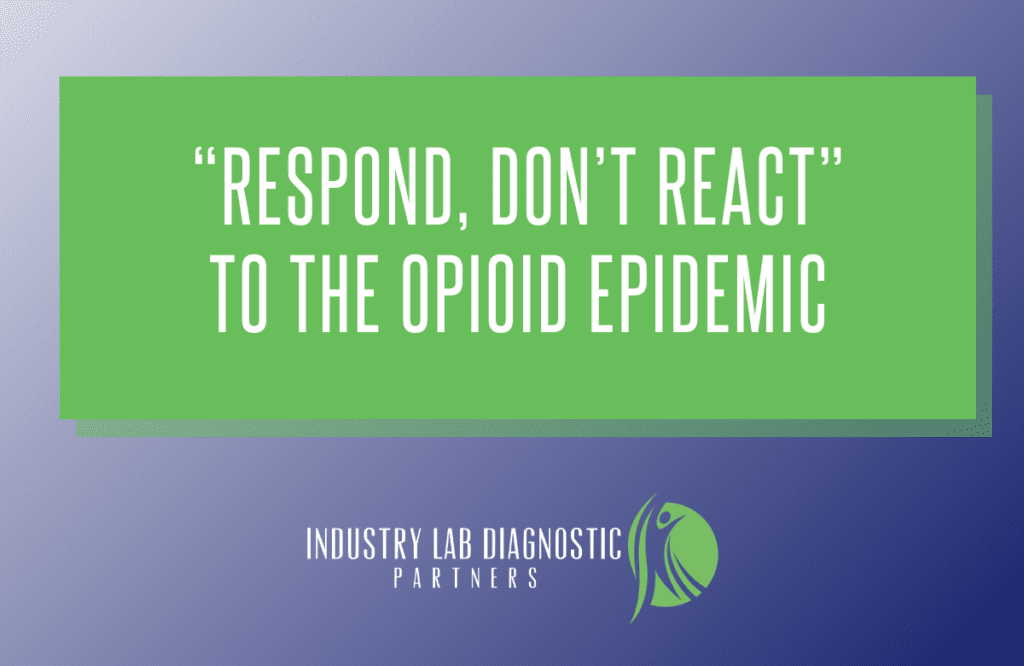“Respond, don’t react”. This sage advice appears to be completely ignored in our country’s urgent desire to “fix” the crisis known to all as the opioid epidemic. A response is thought out, calm and non-threatening. A reaction is typically quick, without much thought, tense, aggressive and many times provokes more reactions, accomplishing nothing. In the eyes of many physicians and chronic pain patients both Federal and State governments have reacted rather than responded, to an acknowledged problem, with at times some draconian measures. Due to a one size fits all regulatory approach; many physicians have opted to cease prescribing opioids leaving their chronic pain patients with few to no options. The fact that there is no clear cut solution enforces my premise; a calm well thought out response is needed, not off the cuff reactions that are masked as solutions. By the end of October of 2018, 33 states had enacted laws with some type of limit, guidance or requirement related to opioids, yet although the amount of opioid prescriptions has decreased, the number of overdose deaths has risen. On March 6, 2019 more than 300 medical experts, including three former White House drug czars, sent a letter to the CDC, contending the guidelines issued by the federal government regarding the over-prescribing of opioid painkillers, were harming patients in severe chronic pain who had been on high doses of opioids for years. Patients who never failed a drug test, always had the correct pill counts and had never abused their medications were suddenly told they could no longer receive the amount of pain medication, or sometimes any pain medication, which had allowed them to live relatively normal lives for years.
“You will never be able to deal logically with an illogical person” is another favorite of mine. It is neither logical nor reasonable taking a punitive approach to chronic pain patients due to irresponsible health care providers or patients with SUD. Most providers are ethical, honest and want to deliver the best care possible to their patients. Using ILDP to drug test the patients for whom they have written scripts is an appropriate, objective way to determine the best treatment plan for the patient. Ironically the government has not approached the labs where the drug testing is performed, to request information regarding drug use by patients. The labs see the pattern of drug use, as well as the pattern of prescribing. Where is the logic in ignoring the business that sees the drug trends around the country on a daily basis? I am not here to say there is a simple solution; however I do know when the government takes the decision making out of the healthcare provider’s control, very little good can come of it. Conversely without appropriate oversight of providers with the ability to write scripts for controlled substances or pharmaceutical companies pushing pills, we are back in the ninety’s when drug use exploded. See, it is not simple.
Ah yes. The struggles we endure today will be the ‘good old days’ we laugh about tomorrow. Thank you all for your trust in us.
Lance Benedict
President/CEO Industry Lab Diagnostic Partners
04/19/2019

